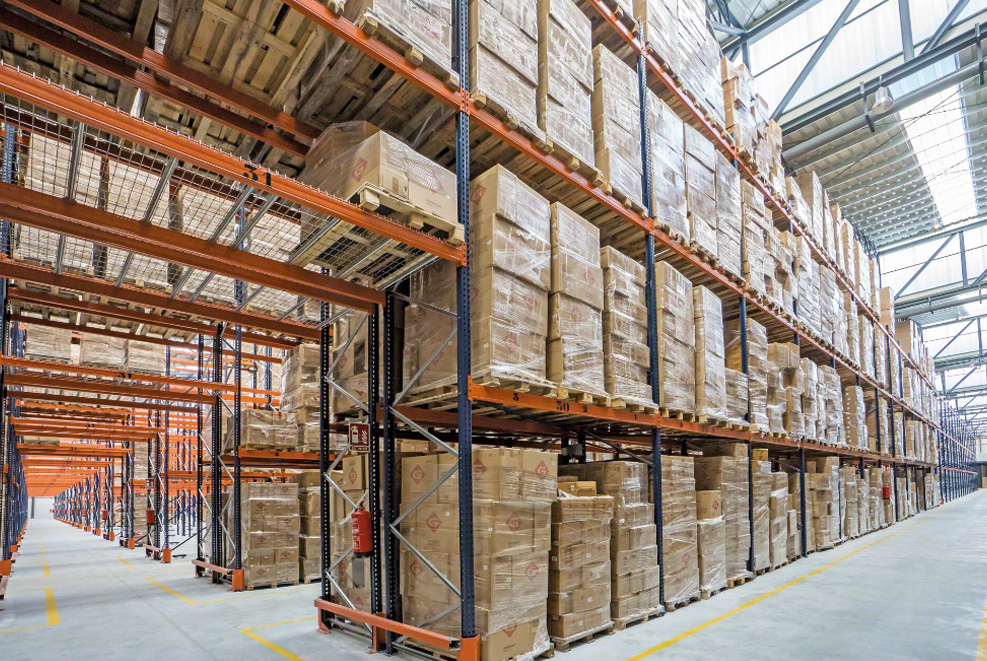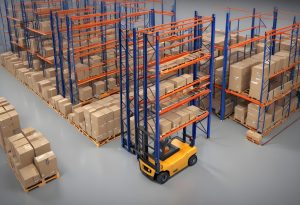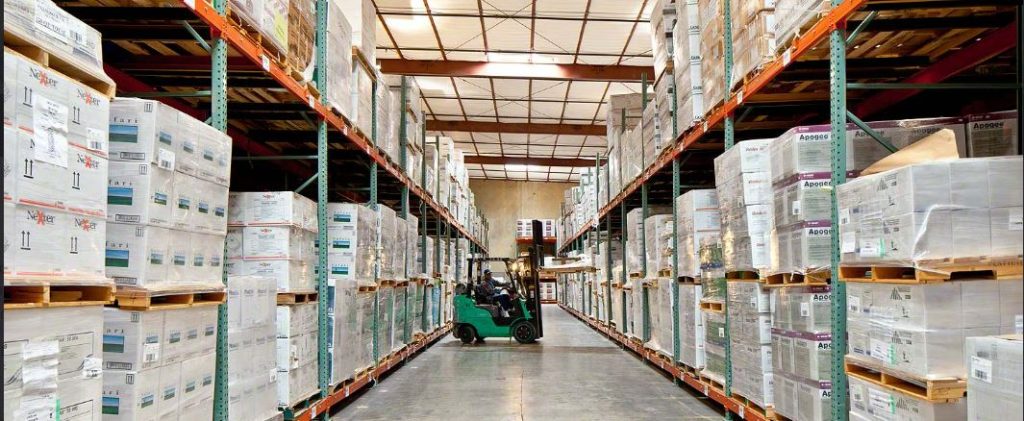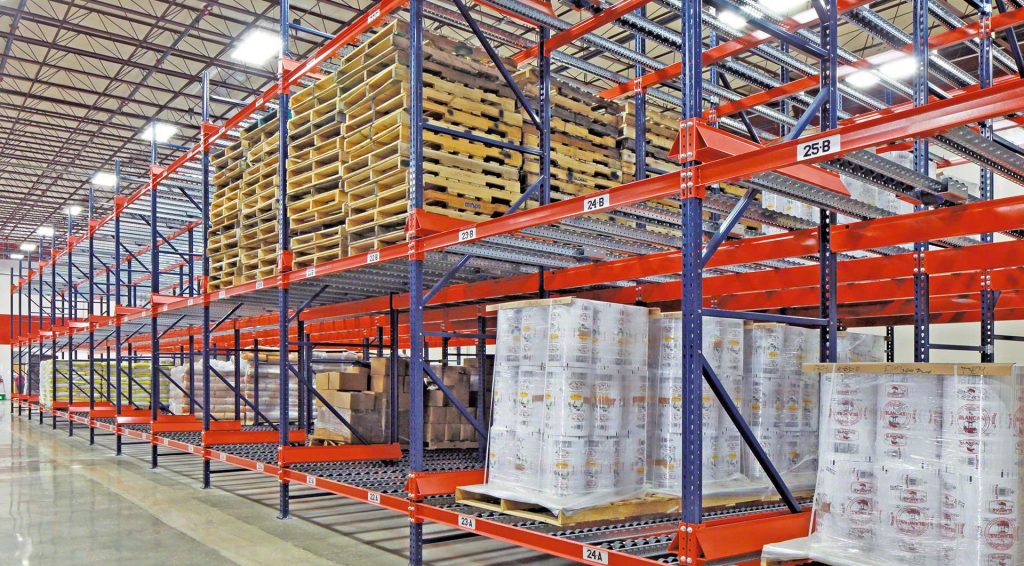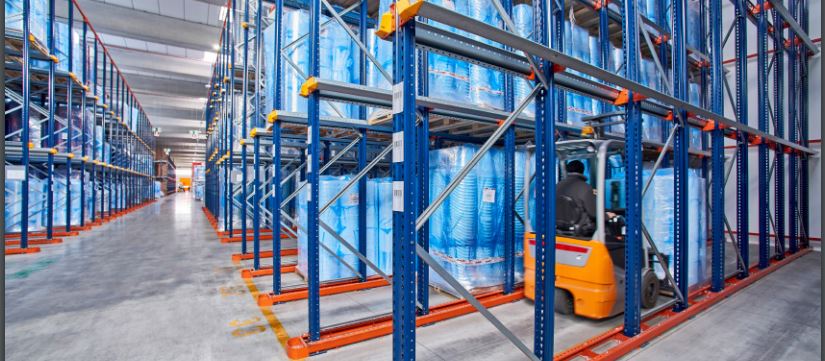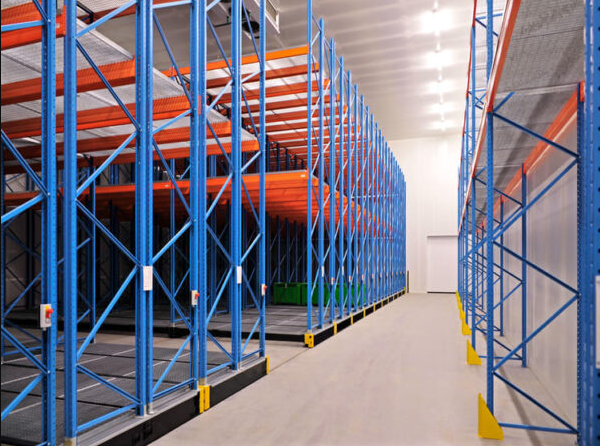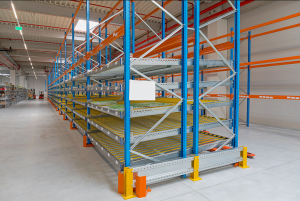A Pallet racking is an essential storage management system with an upright structure made of steel. It consists of beams and connectors combined with bolts, welding, or clips to store the inventory safely. There are different types of racking systems for warehouses.
However, not all pallet racking types are suitable for all businesses. It would help if you found the right kind to improve productivity, efficiency, and accessibility. It will also reduce inventory wastage.
So, understand types, their layout and structure, capacity, stock management facility, and cost before choosing one. Each pallet has different key benefits for the warehouse racking system. Here are 9 types of rackings.
The 9 Best Types of Pallet Racking for Your Business
1. Selective Pallet Racking
Selective pallet racks are the most common warehouse racking. It provides direct access to the inventory without moving. The selective rack is adjustable and customizable to meet different inventory needs according to size and weight. They are also suitable for various types of forklifts. Here are several selective racking advantages.
| Pros |
Cons |
| Provide direct access to inventory | Lower storage space |
| Adjustable with weight and size | Inefficient use of vertical space. |
| Cost-effective | Not perfect types of racks for businesses with higher storage needs. |
| Simple installation | |
| Easy load and unload |
Suitable for: A wide variety of SKUs and high turnover rates like retail, general warehousing, and distribution centers.
Stock management: Selective rack is suitable for Both FIFO and LIFO
2. Double Deep Pallet racking
Double deep racking is a kind of selective racking with higher storage capacity. The pallets are stored two deep to increase the storage. However, this will sacrifice direct access. But it offers simple access to the inventory that ensures quick loading.
|
Pros |
Cons |
| Highly efficient for loading and unloading. | No direct product accessibility like selective racking |
| Robust system to handle heavy inventory | Require special forklifts to operate |
| Easy assembly and low maintenance | |
| Adjustable with inventory needs | |
| Better space utilization |
Suitable for: Distribution centers with moderate turnover or Higher store capacity needs with the same SKUs.
Stock management: LIFO (Last In, First Out)
3. Back Racking / Push-back racking systems
Push-back or back-racking is another high storage racking method where pallets are stored 2 to 6 deep. The pallets are loaded from the front and pushed back when new are stored. When the new are removed, the remaining pallets are rolled forward for removal or access. Learn more about the specification here.
|
Pros |
Cons |
| High-density storage system compared to selective or double-deep racking. | Limited to LIFO only |
| Suitable for various products | Higher initial cost |
| Efficient space utilization | |
| Minimal aisle space requirement | |
| Reduce forklift travel for added safety |
Suitable for: Warehouses with medium yet efficient inventory turnover needs.
Stock management: LIFO (Last In, First Out)
4. Pallet Flow Rack
Pallet flow racking is a dynamic system that uses gravity to move pallets from one end to another. The inclined rails tracks allow them to move forward when front pallets are removed. It reduces the handling time and increases the stock rotation.
|
Pros |
Cons |
| High storage capacity. | Limited product variety |
| Auto and fast stock rotation. | |
| Higher efficiency in stock management. | |
| Reduce aisle requirements | |
| Low maintenance |
Suitable for: Industries with high turnover rates, such as food distribution centers and beverages.
Stock management: FIFO method (First In, First Out).
5. Drive-In/Drive-Thru Rack
A drive-in/drive-thru rack is a high-storage racking system where pallets are stored multiple positions deep. Drive-in racks have single entry points, whereas drive-thru rackings have double entry and exit points for both sides of access.
|
Pros |
Cons |
| Cost-effective yet large storage solution | Limited selectivity |
| Bulk storage benefits | Risks of damage due to forklift traffic |
| Efficient space utilization | |
| Simple structure with minimum maintenance | |
| Minimizes the load for aisle |
Suitable for: cold storage, bulk storage, or limited SKU type.
Stock management: FIFO (First In, First Out)
6. Roll Formed Cantilever Rack
Roll Formed Cantilever Racking is a special rack system for bulky or long items like pipes, lumber, and furniture. The system has vertical columns with horizontal arms extending outwards. It creates an open space for products and is highly adjustable according to size and weight.
| Pros |
Cons |
| Suitable for long and bulky size | Not suitable for standard-sized |
| Highly adjustable | Higher initial cost |
| Open design | |
| Higher storage capacity | |
| Versatile product suitability |
Suitable for: Construction materials, furniture, metal, and pipe
Stock management: Suitable for inventory not managed by FIFO or LIFO.
7. Mobile Pallet Racking
Mobile racking is a highly adjustable racking system where the pallets are located on mobile bases and can be moved. It eliminates the need for fixed aisles to let the racks move where needed. This is highly suitable for businesses with limited warehouse spaces.
|
Pros |
Cons |
| High storage density | Require regular maintenance |
| Dynamic accessibility | High initial cost |
| Versatile and adjustable space | |
| Higher safety and lower product damage | |
| Energy efficient |
Suitable for: cold storage, limited spaces
Stock management: FIFO (First In, First Out)
8. Shuttle Racking
Shuttle racking is a semi-automated storage system with a motorized shuttle that allows auto pallet transport within the rack. The automatic shuttle reduces the forklift involvement to save labour costs.
|
Pros |
Cons |
| Automatic system to ensure higher efficiency | Complex maintenance |
| Reduce labor cost | Limited SKU variety |
| Fast loading and unloading | |
| Improve stock control | |
| High-density storage system |
Suitable for: Large volume of the same SKU
Stock management: LIFO (Last In, First Out), but best for inventory not managed by FIFO or LIFO.
9. Carton Flow Racking
As the name implies, carton flow racks are designed for small to medium-sized cartons and boxes. It features slightly inclined gravity-fed roller tracks to ensure easy flow for faster loading and unloading.
| Pros |
Cons |
| Efficient Stock Rotation | Limited to small to medium items |
| Fast loading and unloading | Higher initial cost and higher maintenance |
| Higher accuracy and less picking error | |
| Easy replenishment | |
| Versatile storage option |
Suitable for: Ideal solution for high-volume order picking
Stock management: Suitable for FIFO
FAQs On What are the different types of pallet racking?
What factors should I consider when choosing a racking system?
Consider the size and weight of your inventory, storage density requirements, access needs, budget, warehouse layout, FIFO or LIFO inventory management, and any other specific needs.
Can pallet racking be used in cold storage facilities?
Yes, you can use it in cold storage facilities since they can handle low temperatures and high humidity levels.
How much weight can a typical pallet racking system support?
It can support 1500 to 5000 pounds, depending on the type of racking.
What is the cost range for different pallet racking systems?
The cost can vary from $60 – $500, depending on the type of racking and pallet you use.
How do I ensure the safety of my pallet racking system?
Proper installation, regular inspection and cleaning, proper load capacity, and sufficient training and safety for workers will ensure the safety of your pallet racking system.
Wrapping up
A good pallet racking will ensure an efficient and safe storage system. Make sure to choose the right type of pallet for your needs. Consider the storage requirement. Calculate the installation, maintenance, and operation costs. Measure your area and check your inventory type to find the right pallet racking for your business.
Matco Distributor provides an all-in-one storage solution. Contact Matco to Maximize Space and Improve Inventory Flow.

